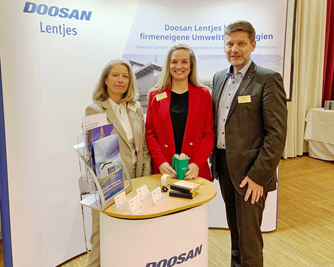
Berlin calling: The capital invites the sewage sludge conference – a report by Joachim Braasch
The days of 13 and 14 November were another “class reunion” for all those affected by sewage sludge in Berlin: the industry met for the 6th time at the annual Berlin Sewage Sludge Conference, which provides an important platform for exchanging views on current political, legal and technological developments and taking a joint look into the future.
The significant, current and foreseeable future changes to the framework conditions in Germany due to the amendment of the Sewage Sludge Ordinance (AbfKlärV) in conjunction with the legal changes to the Fertiliser and Fertiliser Ordinances (DüV and DüMV) from 2017 continue to be the trigger and fundamental reason for the conference. The European Commission had already placed phosphorus on the list of critical raw materials as one of 20 substances at the end of May 2014. The amendment to the Sewage Sludge Ordinance provides for the recovery of phosphorus from sewage sludge from 2029 or 2032, which is to be carried out by the sewage sludge producers, the municipal sewage treatment plants.
The industry has been presenting, discussing, arguing and puzzling over whether, how and from when the requirements for phosphorus recycling on an industrial scale can or could be met across the board in Germany at various conferences and seminars and with changing focal points for six years now. The topics of discussion cover issues relating to technical feasibility, economic profitability, whether it makes sense in the context of the European Green Deal and administrative, procurement and waste law issues.
Accordingly, the interests of the approximately 220 participants at the conference were just as broadly diversified as the numerous questions. A colourful mix of practitioners from operators, plant constructors and suppliers, academics from research institutions, consultants, lobbyists, lawyers and a few representatives of the legislators enabled and ensured a very varied programme of presentations and insightful discussions during the numerous coffee breaks and over dinner.
At the end of the two days, everyone subliminally agreed that there will continue to be plenty of topics for discussion – at least until 2029 – that were originally triggered by the legal changes to the framework conditions in Germany in 2017. Ultimately, the conviction remained that these challenges can only be solved together in small steps through regular dialogue at specialist level.